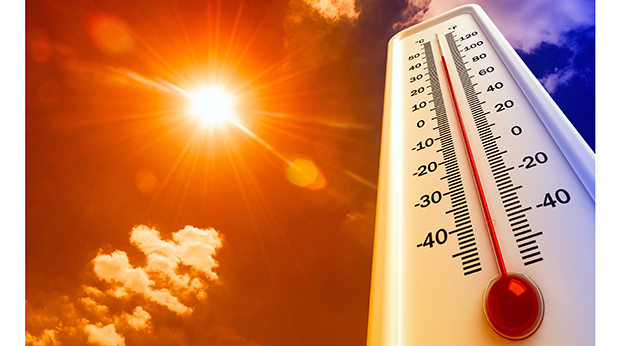Extreme heat causes Boyle deaths every year
Published 12:40 pm Wednesday, July 22, 2020
At least three people die in Boyle County each summer due to living alone in their home during extremely hot weather.
According to Boyle County Emergency Management Director Mike Wilder, there are three or four cases every summer where people died in their homes because they lived alone and no one checked on them during extreme heat waves like the one central Kentucky has been experiencing the past few days.
The victims usually are elderly and have underlying medical issues, Wilder said. “They die unattended in their house or apartment. They stay much longer than they need to,” Wilder said.
And now more than ever since it’s common that the most vulnerable in the population are staying indoors and out of the public due to the coronavirus pandemic, they need to be checked on frequently, Wilder said.
Whenever he hears the emergency dispatcher on the radio requesting first responders do a welfare check on someone who hasn’t been seen or heard from for a few days, he worries that it might be the next case of someone dying from the effects of extreme heat in their own home.
“There’s no reason for that,” he added.
Even a distant kin who lives out of town can have someone check on their family member everyday to see if they need anything, Wilder said.
In the heat of the summer, “We sometimes get complacent,”
A news release that Wilder shared stated, Heat kills by pushing the human body beyond its limits. In extreme heat and high humidity, evaporation is slowed and the body must work extra hard to maintain a normal temperature.
Most heat disorders occur because the victim has been overexposed to heat or has over-exercised for his or her age and physical condition. Older adults, young children, and those who are sick or overweight are more likely to succumb to extreme heat.
What you should do if the weather is extremely hot:
- Stay indoors as much as possible and limit exposure to the sun.
- Stay on the lowest floor out of the sunshine if air conditioning is not available.
- Consider spending the warmest part of the day in public buildings such as
libraries, schools, movie theaters, shopping malls, and other community facilities.
- Drink plenty of water. Persons who have epilepsy or heart, kidney, or liver
disease; are on fluid-restricted diets; or have a problem with fluid retention
should consult a doctor before increasing liquid intake.
- Limit intake of alcoholic beverages.
- Check on family, friends, and neighbors who do not have air conditioning and
who spend much of their time alone.
- Never leave children or pets alone in closed vehicles.
First Aid for Heat-Induced Illnesses
Extreme heat brings with it the possibility of heat-induced illnesses. The following lists these illnesses and the first aid treatment.
- Sunburn — Take a shower using soap to remove oils that may block pores, preventing the body from cooling naturally. Apply dry, sterile dressings to any blisters and get medical attention.
- Heat cramps — Get the victim to a cooler location. Lightly stretch and gently massage affected muscles to relieve spasms. Give sips of up to a half glass of cool water every 15 minutes. Do not give liquids with caffeine or alcohol. Discontinue liquids if the victim is nauseated.
- Heat exhaustion — Get the victim to lie down in a cool place. Loosen or remove clothing. Apply cool, wet cloths. Fan or move the victim to an air-conditioned place, give sips of water if the victim is conscious. Seek immediate medical attention if vomiting occurs.
- Heat stroke — call 911 or get the victim to a hospital immediately. Delay can be fatal. Move the victim to a cooler environment. Try a cool bath, sponging or wet sheet to reduce body temperature. Watch for breathing problems. Use extreme caution.







